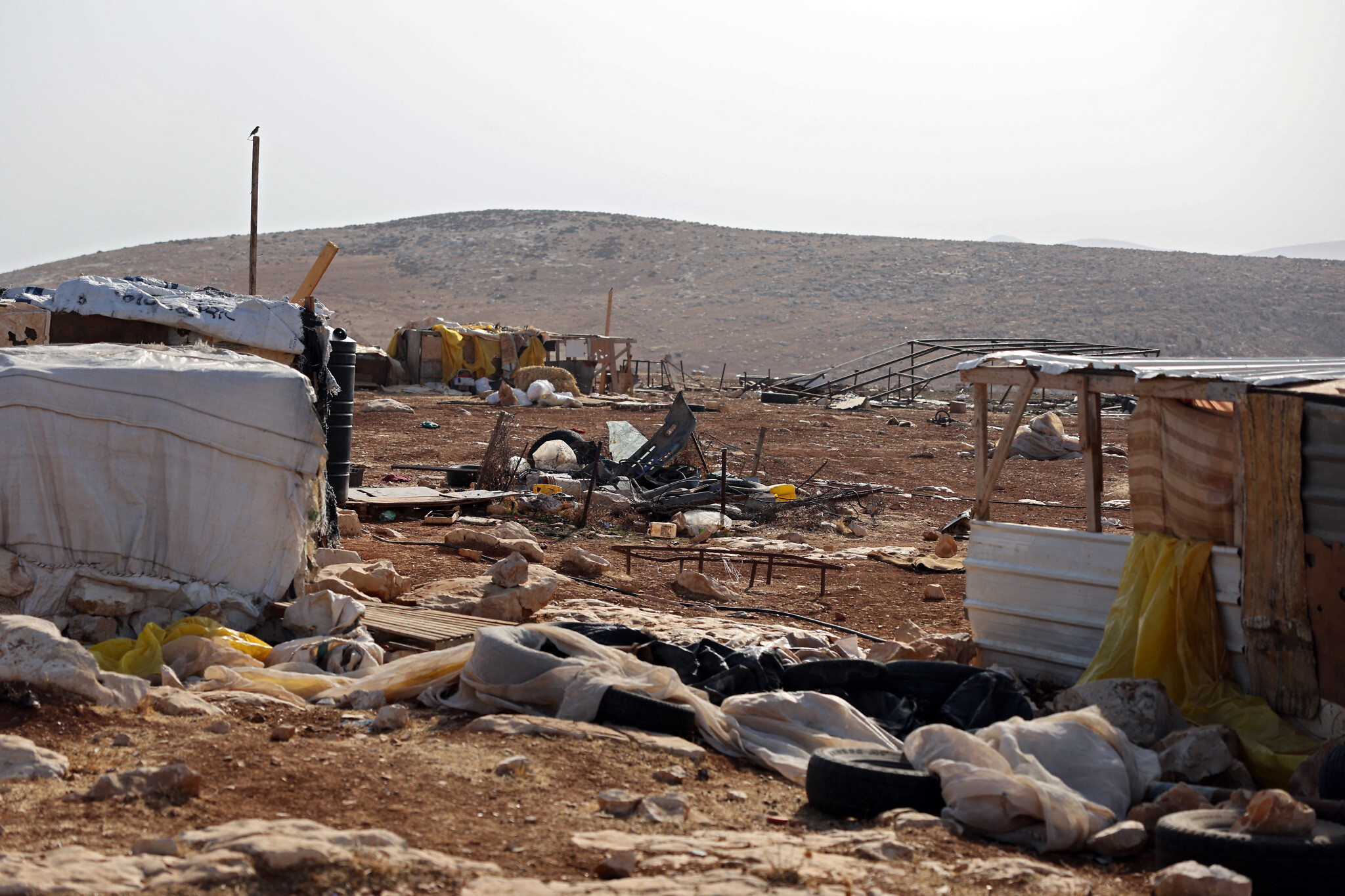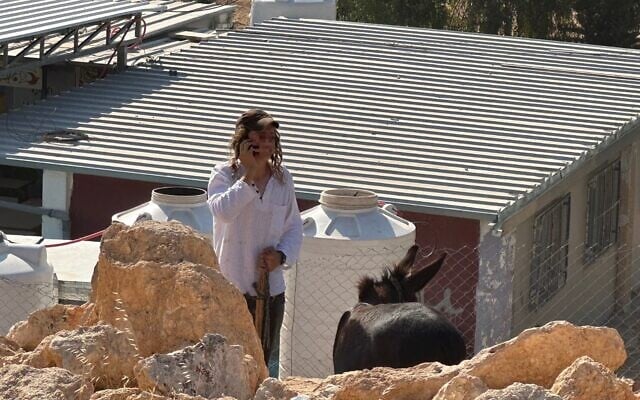



Former residents of the displaced Palestinian Bedouin community of Wadi as-Seeq are requesting ongoing protection from security services to enable them to return to their dwellings — or that the High Court of Justice order the destruction of an illegal settler outpost located just 100 meters (328 feet) from their hamlet.
The residents made their demands Sunday in response to a proposal by the High Court in May that the Israel Defense Forces and the Israel Police physically enable the residents to return. But the court refused to order that the outpost be removed or that security services provide protection to the hamlet after the residents’ return.
Several dozen Palestinian Bedouin families fled Wadi as-Seeq in October 2023, in the face of persistent settler harassment and violence after radical activists established an illegal outpost right next to the hamlet.
The judges said during court hearing in May that if the residents suffered further violence after returning, they would have a better case to demand the demolition of the outpost.
Filing a response to the court proposal on behalf of the Wadi as-Seeq residents, attorney Tamir Blank of the Torat Tzedek organization had tough words for the justices, saying it was “unjust” to expect the residents to endanger their own lives and property “just in order to prove with their own flesh that the violence continues.”
The attorney argued that the court should not lend a hand to “the farce” of having the residents return without proper security arrangements for the future, since they would just be displaced again by extremist settlers, as has happened to numerous other Bedouin communities in other parts of the West Bank.
The Wadi as-Seeq case is significant because it showcases one of the earliest examples of the tactic now increasingly used by extremist settlers of establishing an outpost as close as possible to a Bedouin hamlet, in order to harass, intimidate, and attack the residents, and ultimately drive them from their homes.
The residents of Muarrajat were displaced in this manner earlier this month, as were the residents of Mughayyir al-Deir, 13 kilometers north of Muarrajat, in May this year.
The residents of Wadi as-Seeq pointed to those examples of displacement as a result of settler harassment in their request to the court on Sunday, and said that without demolishing the outposts, it would be pointless for them to return.
They also alleged that the refusal of the IDF and the Civil Administration, a department of the Defense Ministry responsible for civilian affairs in the West Bank, to give any guarantees for the residents’ safety demonstrated that they were “at ease” with the fact that the residents would not return. They further charged that this was actually “in accordance with their policies and actions in different places as well.”
Blank wrote that the residents would, however, be willing to return without the destruction of the illegal outpost, if at least several conditions were met.
These included that security services set up a special emergency hotline for residents to call in the event of harassment or violence by the settlers, and the IDF declaring the boundaries of Wadi as-Seeq to be a closed military zone to prevent settlers from entering.
They also asked that the IDF or the Civil Administration pay for a private security company to secure the hamlet, if security services themselves are unwilling or unable to do so. They noted that the state has paid for private security companies to provide security for Jewish residents of East Jerusalem neighborhoods such as Silwan.
“It’s not possible that the state protects only Jews and not Palestinians, and will restrict private security to Jews only, without even considering the issue,” Blank wrote in the court filing.

